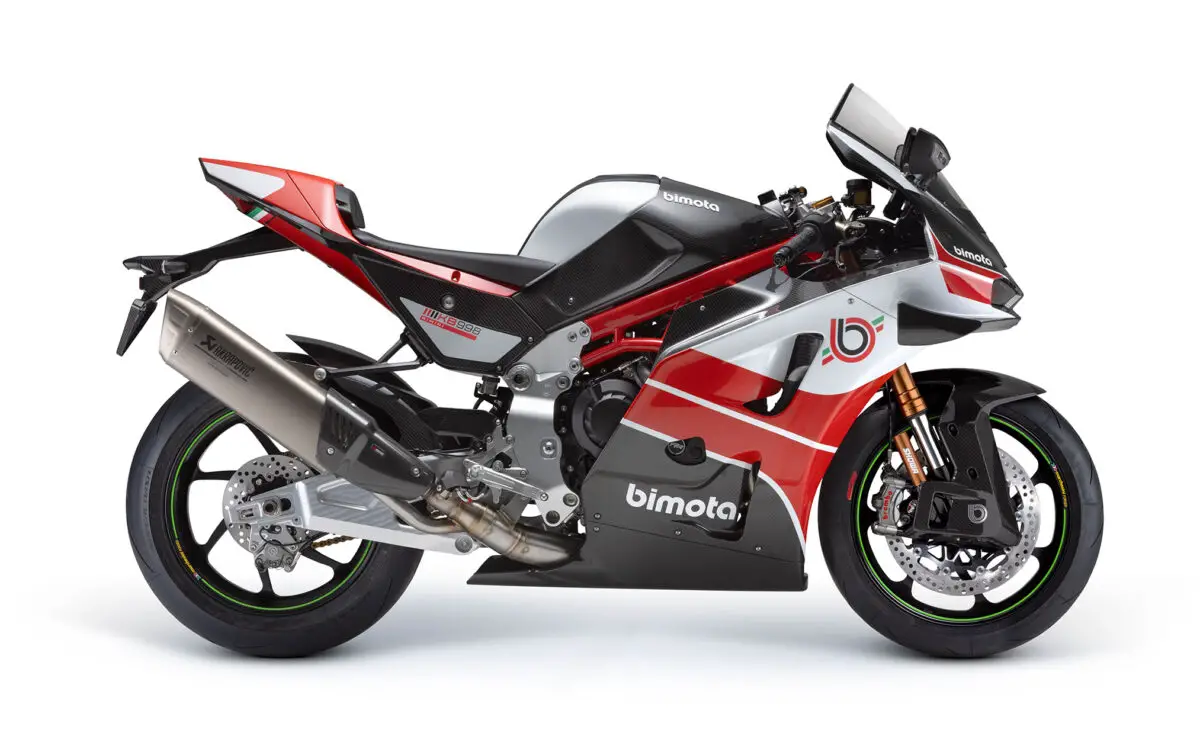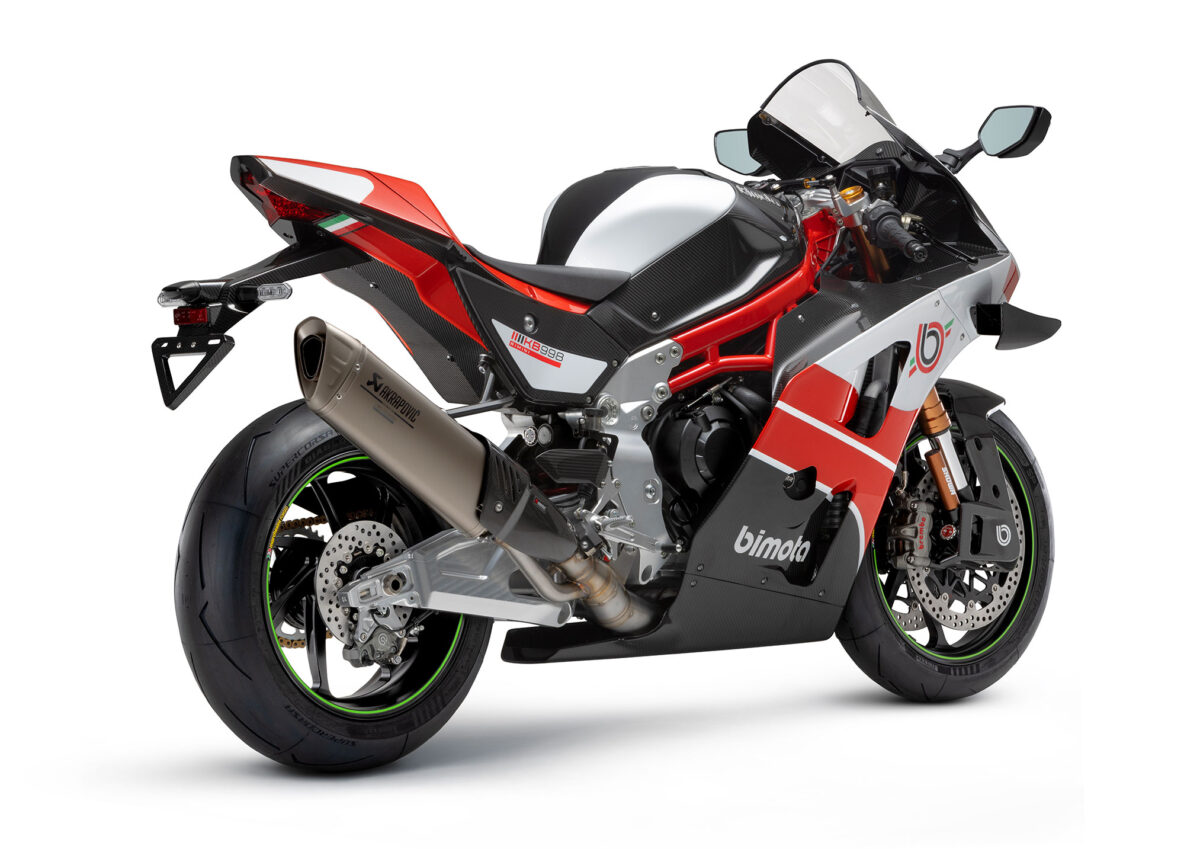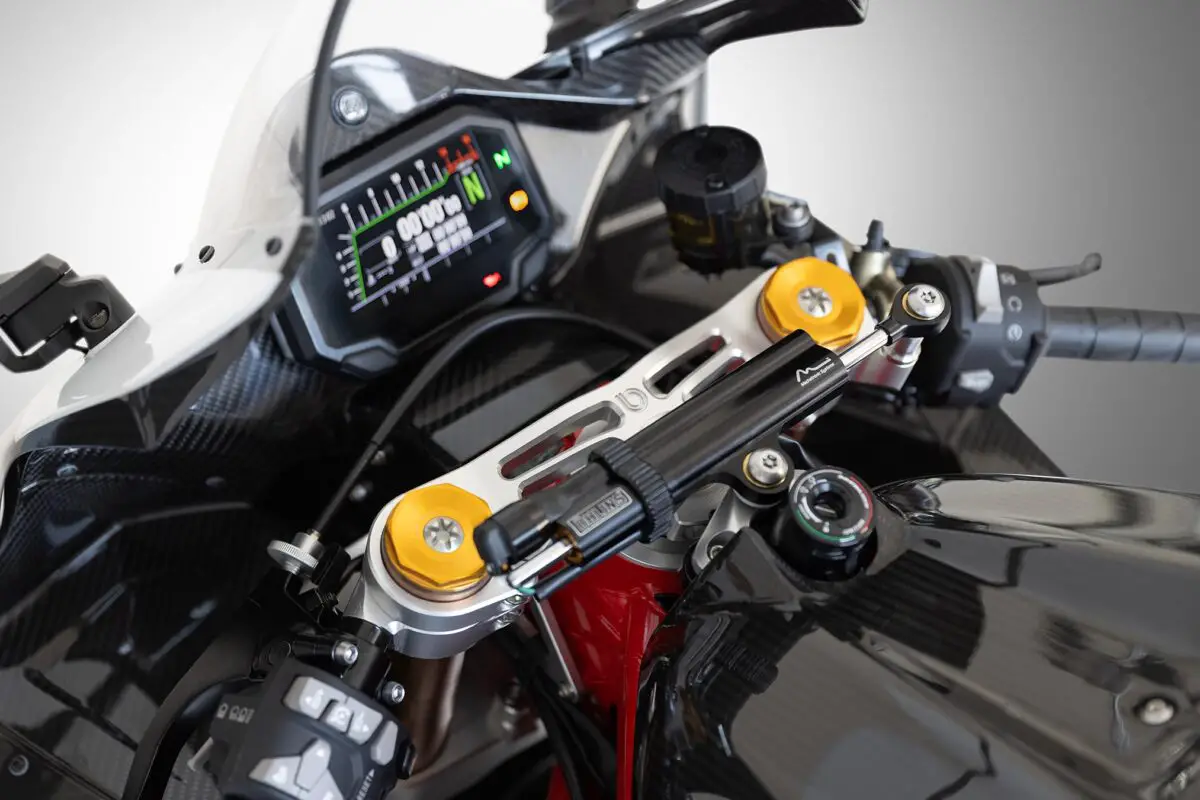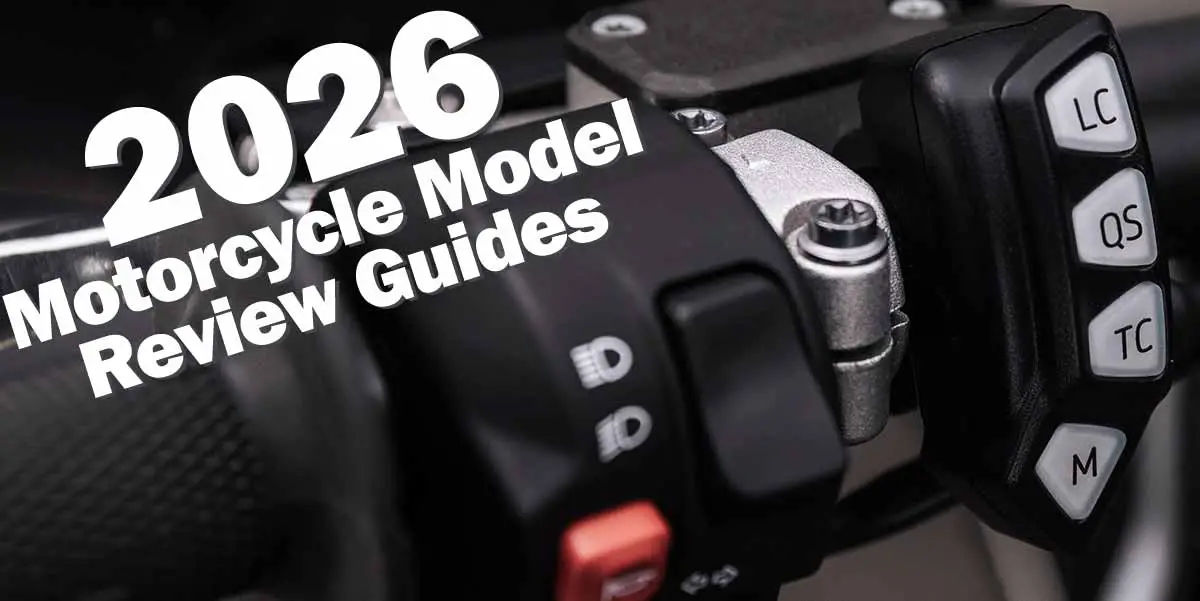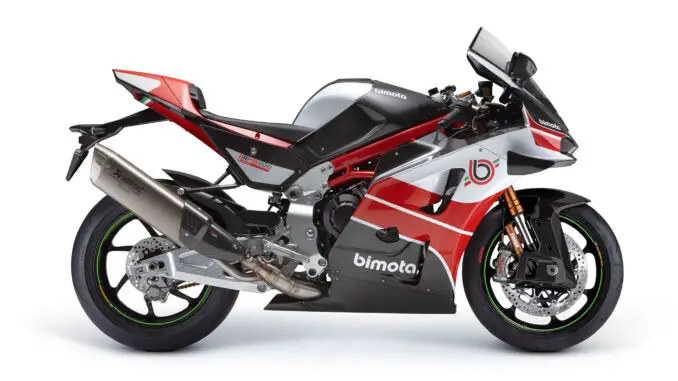
The street version of the 2025 WorldSBK racer is now in production, 125 units will be assembled before February the 24th, 2025. Additional 125 units will be assembled within December 31st 2025, a total of 500 units to accomplish the FIM rules will be produced in 2026.
Review – Key Features – Features & Benefits – Specifications
2026 Bimota KB998 Rimini: ELECTRIC DUAL SPORT FREEDOM.
Introducing the 2026 Bimota KB998 Rimini…
The 2026 Bimota KB998 Rimini is a tribute to a unique city populated by unique people, racing has always been a part of bimota’s & Rimini’s history. Only in Rimini such an incredible fairytell can be written. And in 2025, with the KB998 Rimini, bimota is finally making their comeback to World SBK.
The street version of the 2025 WorldSBK racer is now in production, 125 units will be assembled before February the 24th, 2025. Additional 125 units will be assembled within December 31st 2025, a total of 500 units to accomplish the FIM rules will be produced in 2026.
Based and developed using the huge pedigree of the Kawasaki Ninja ZX10RR, the KB998 Rimini has convinced riders and team staff during the
first test of 2025 WorldSBK.
The KB998 Rimini features a chassis structure combining a chromemolybdenum oval section pipe main frame with a machined aluminum pivot plate, which is based on bimota’s unique design philosophy.
With this unmistakeable racing jewel bimota has renewed its racing philosophy creating a no compromise machine targeted to racing activity.
Since the the first days of bimota activity, long time ago when the factory was loacated in Via Covignano, bimota technicians always designed machines for racing use with lights, mirrors and number plate.
Now the tradition is confirmed with the KB998Rimini. True to bimota’s distinct style, it makes abundant use of machined aluminum alloy parts throughout, and its exterior incorporates carbon-fiber structural parts.
It also features a pivot adjuster and eccentric adjuster that allow for easy adjustments to chassis geometry, and the winglets are able to automatically
maintain the optimal angle at all times.
This is a machine built with a primary focus on speed on the racetrack—a truly high performance racing model.
Bimota line-up is now gettitng populated with a complete range of models which will be enlarged soon with new and captivating products dedicated to
different market segments.
September 5, 2025 UPDATE:
“Regarding the KB998 Rimini, which was scheduled to be released on September 1, 2025, due to various circumstances, we have decided to postpone the release date as it requires time to prepare for sales.
We sincerely apologize for any inconvenience caused to everyone who has been eagerly awaiting the release.
We will announce the new release date on this website as soon as it is decided.
We appreciate your understanding.”
2026 Bimota KB998 Rimini Guide Totalmotorcycle.com Key Features
Max. Power: 147.1 Kw / 200 hp @13.600 r/min
Max. Torque: 111 Nm @ 11.000 r/min
Curb Weight: 194 Kgs (with all the liquids)
Bimota, reborn under the aegis of Kawasaki (which has held a 49% stake since 2019), utilizes this model to cement its reputation as a boutique innovator whose machines are sought after by collectors, racing enthusiasts, and the global luxury market. The KB998 Rimini’s extremely limited production run (500 units in total), manual construction, and advanced componentry elevate its standing as a true collector’s piece with likely appreciating value, echoing previous Bimota hand-built legends like the Tesi H2 and SB8K.
2026 Bimota KB998 Rimini Guide Totalmotorcycle.com Features and Benefits
Specification and Heritage Comparison Table
| Model | Production Years | Engine | Power (hp) | Weight (dry) | Chassis | Distinctive Features | Notable Racing / Market Context |
| KB998 Rimini | 2025–26 | Kawasaki ZX-10RR 998cc I4 | 197-200 | 195 kg | Steel trellis + billet alloy, carbon body | Active aero, Showa/Brembo, handmade | 2025–26 WorldSBK homologation |
| KB4 | 2021–24 | Kawasaki Ninja 1000SX 1043cc I4 | ~142 | ~194 kg | Trellis, alloy plates, single shock | Retro style, hand-assembled, modern tech | Collectible, not WorldSBK registered |
| Tesi H2 | 2020–23 | Kawasaki H2 998cc supercharged I4 | 228+ | 214 kg | Hub-steered, alloy plates | Supercharged engine, hub-steering | Hyperbike, tech showcase |
| SB8K | 1999–2007 | Suzuki TL1000R V-twin 996cc | 135 | 179 kg | Alloy perimeter, carbon | Carbon subframe, WSBK 2000 wildcards | 2000 WSBK Phillip Island win |
| YB4 | 1987–89 | Yamaha FZ750 749cc I4 | 120 | 179 kg | Alloy twin-spar | Advanced for era, WSBK 1988 race wins | WSBK 1988 wins by Tardozzi |
Elaboration on Key Differences:
KB998 Rimini vs. KB4: While the KB4 is itself a hand-built, collector-oriented superbike with a bespoke frame and moderate power, the KB998 Rimini is several evolutionary steps ahead in outright performance, material sophistication, and electronics. The KB998 is purpose-built for SBK homologation, where the KB4 was a retro-inspired sportbike with modern trimmings but no intention for world-scale racetrack competition.
KB998 Rimini vs. Tesi H2: The Tesi H2 is arguably the most radical Bimota of the past decade—hub-steered, supercharged, and visually spectacular. Where the Tesi H2 served as a technical and marketing showpiece, the KB998 Rimini is a focused racing platform, designed for compliance with FIM rules and using state-of-the-art (but more conventional and race-proven) chassis dynamics, with the added twist of active aerodynamics. The Tesi H2’s supercharged power eclipses the KB998, but its weight and handling philosophy are less circuit-oriented, more about advanced technology demonstration.
KB998 Rimini vs. SB8K: The SB8K, powered by a Suzuki TL1000R V-twin, delivered Bimota’s last major WorldSBK success (notably with Anthony Gobert at Phillip Island, 2000). The KB998 Rimini is spiritually and technically its real successor. Where the SB8K innovated with carbon and alloy blends and unique frame geometry, the Rimini takes modularity and weight-saving to new heights, while substantially increasing both power and the sophistication of electronics, aerodynamics, and safety features.
KB998 Rimini vs. YB4: The YB4, based on Yamaha’s FZ750 engine, was the motorcycle on which Bimota won five WSBK races in 1988. It was revolutionary for its era, bringing GP-derived chassis design to production racing. The KB998 Rimini, with its hybrid frame, hand assembly, and electronics, furthers this philosophy in a 21st-century context—now tasked not only to win races, but to dazzle as a technological and collectible artifact
2026 Bimota KB998 Rimini Guide – Totalmotorcycle.com Specifications/Technical Details
US MSRP Price: $ See Dealer USD
Canada MSRP Price: $ See Dealer CDN
Europe/UK MSRP Price: £37,777 GBP (On The Road inc 20% Vat)
Chassis: billet aluminium alloy plates with oval tube trellis frame
Engine Type/Displacement:4-stroke, 4-cylinder, water-cooled, DOHC 4-valve
Displacement: 998 cm³
Bore x Stroke: 76.0 mm × 55.0 mm
Compression ratio: 13 : 1
Maximum power: 147.1 kW (200 hp) / 13,600 rpm
Maximum torque: 111N・m / 11,700 rpm
Fuel system: DFI
Fuel tank capacity: 17 litres
Transmission: 6-speed
1° 2.600 (39/15); 2° 2.158(41/19); 3° 1.882(32/17); 4° 1.650(33/20); 5° 1.476(31/21); 6° 1.304(30/23)
Primary ratio: 1,681 (79/47)
Final drive ratio: 2.412 (41/17)
Clutch: Wet multi-disc clutch
Lubrication: With trochoidal pump
Oil quantity: 5.0 l
Length: 2,085 mm
Width: 862 mm
Height: 1,205 mm
Wheelbase: 1,454 mm
Seat height: 830 mm
Steering angle / Trail: N/A
Suspension, front: Showa USD Balance Free 43 mm
Wheel travel: 130 mm
Rear suspension: billet aluminium alloy swingarm
Rear wheel travel: 125 mm
Front tyre: 120 / 70Z R17 (58W)
Front wheel: J17M/C × MT3.50
Rear tyre: 200 / 55Z R17 (78W)
Rear wheel: J17M/C × MT6.00
Front brake: Dual 330 mm discs
Brakes, rear: Single disc 220 mm
Dry weight: 195 kg
Price to the public in Italy with VAT (22%): € TBD
Manufacturer Specifications and appearance are subject to change without prior notice on Total Motorcycle (TMW).




